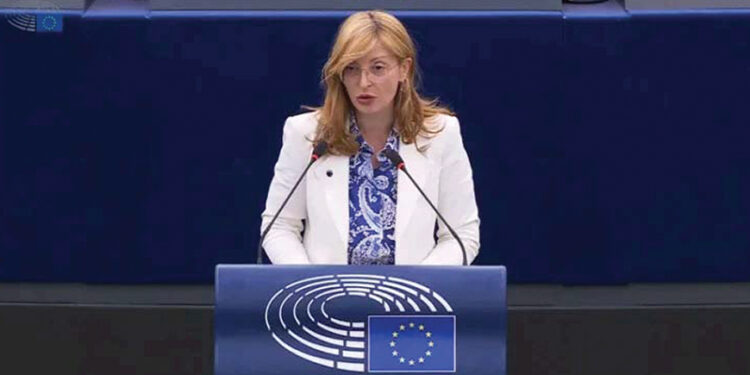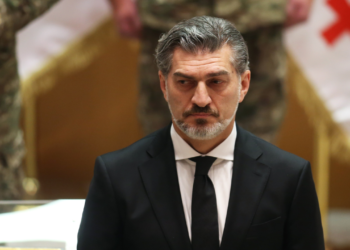The European Parliament has strongly condemned the Georgian government’s escalating crackdown on independent media and civil society, adopting a resolution titled ‘The Situation of Media Freedom in Georgia, Particularly the Case of Mzia Amaglobeli.’ Passed by 324 votes to 25, with 87 abstentions, the resolution demands the immediate and unconditional release of veteran journalist Mzia Amaglobeli and calls for the repeal of legislation restricting press freedom and civic activism.
Amaglobeli, co-founder of Batumelebi and Netgazeti, was arrested during pro-European protests on January 12, 2025. Her detention, described by the European Parliament as a violation of judicial fairness, has drawn international outcry, particularly following reports of inhumane treatment during a 38-day hunger strike.
The resolution criticizes the ruling Georgian Dream party’s legislative campaign—including the Foreign Agents Registration Act—as “a deliberate authoritarian strategy to silence dissent.” It condemns procedural violations in Amaglobeli’s case, noting her pre-trial detention, multiple fines, and pending criminal charges. One recent offense—placing a protest sticker on the Adjara Police Department gate—led to a 1,000 GEL fine, followed by a second charge related to a confrontation with police, described by witnesses as “mild and symbolic.”
MEPs also expressed concern over the broader context of repression. The resolution calls for the release of other political prisoners, including Mate Devidze, Zurab Japaridze, Nika Melia, Nika Gvaramia, and former President Mikheil Saakashvili. It denounces the abduction of an opposition leader’s husband and threats against her children, framing these as part of a systemic assault on democracy.
In a powerful address to Parliament, Ekaterina Zaharieva, EU Commissioner for Startups, Research, and Innovation, underscored the symbolic weight of Amaglobeli’s case. “The EU remains ready to take measures to hold human rights violators in Georgia accountable,” Zaharieva declared. She cited a “growing pattern of harassment, intimidation, and politically motivated persecution” and called the treatment of Amaglobeli “unacceptable for a country aspiring to EU membership.”
“These tactics are clearly designed to silence dissenting voices and restrict democratic space,” she said, referencing disproportionate sentences for young protesters and legal actions against independent media “for speaking the truth.”
Zaharieva emphasized the broader risks: “Georgia’s European path remains open, but the authorities must choose to follow it. This is not the behavior the EU—or more importantly, the people of Georgia—expect from a government seeking closer ties with Europe.”
MEPs across party lines—among them Rasa Jukneviciene, Małgorzata Gosiewska, and Petras Auštrevicius—publicly demonstrated support by displaying banners with the names of detained or persecuted figures, including Amaglobeli. Estonia and Lithuania have already imposed sanctions on Georgian officials linked to the journalist’s case.
The European Parliament also urged EU Member States to consider bilateral sanctions and called on EU institutions to increase support for independent media and civil society in Georgia.
Zaharieva highlighted that independent journalism and broadcasting are essential—not only for uncovering injustice but also for challenging the rising tide of disinformation about the EU spread by those in power. “We stand in strong solidarity with Georgia’s independent media,” she said.
By Team GT














